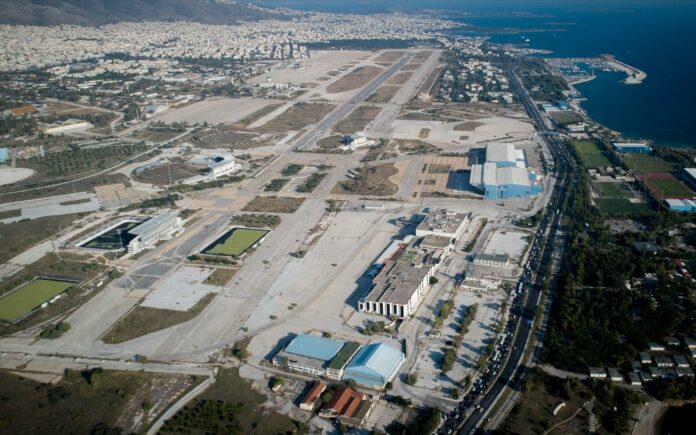Βy. T. Igoumenidi
[email protected]
Bureaucratic obstacles and “nit-picking” continue to impede the commencement of the massive Helleniko privatization in coastal southeast Athens, with the culture ministry general secretary in the outgoing Tsipras government reportedly expressing opposition to the signing of a joint ministerial decision.
The latest “roadblock” to the iconic real estate development, worth nearly eight billion euros, comes days ahead of a general election that center-right and pro-reform New Democracy (ND) party is forecast to win. ND and its leader, Kyriakos Mitsotakis, have repeatedly promised that, if elected, the Helleniko project’s commencement and completion will be a priority for the next government, while also pointing to four-and-a-half years of “foot-dragging” by the leftist Tsipras government vis-à-vis the investment.
The Helleniko development covers the expanse where the one-time Athens airport operated, with disused terminals, hangars, tarmacs and auxiliary facilities mostly left rotting today. A handful of outdoor venues for the Athens 2004 Games also dot the otherwise weed-covered landscape in a prime setting along Athens’ burgeoning “riviera”.
The signing of the joint ministerial decision is a necessary next procedural step along the ubiquitous Greek bureaucratic “paper trail”. However, reports have the culture ministry’s general secretary, Maria Vlazaki, demanding more modifications to the project’s master plan than the current legislation foresees.
In bid to shed its image as an ideological adversary of the specific real estate development project, members of the outgoing government stepped up efforts over recent days to sign at least one out of three such ministerial decisions pending.
Nevertheless, the culture ministry’s leadership, which has generated much of the “red-tape” ensnaring the Helleniko project over the past few years, demanded that all studies (for new buildings, facilities and even landscaping) at the site require its approval, regardless of whether they are in the vicinity of a modern-day architectural monument or an area of “archaeological interest”.
The Lamda Development-led consortium that has won an international tender to development the property has ruled out any such prospect, countering that this is not required by law and would simply pile on future delays in construction.
According to reports, Lamda representatives walked out of a meeting with the government side on at least two occasions, while marathon negotiations were simultaneously underway between the general secretaries of the ministries set to sign the ministerial decision. They returned after government officials tried to find a compromise to satisfy both the investors of multi-billion-euro project – the biggest of its kind in south Europe – and a lone ministry official in their own outgoing government.














